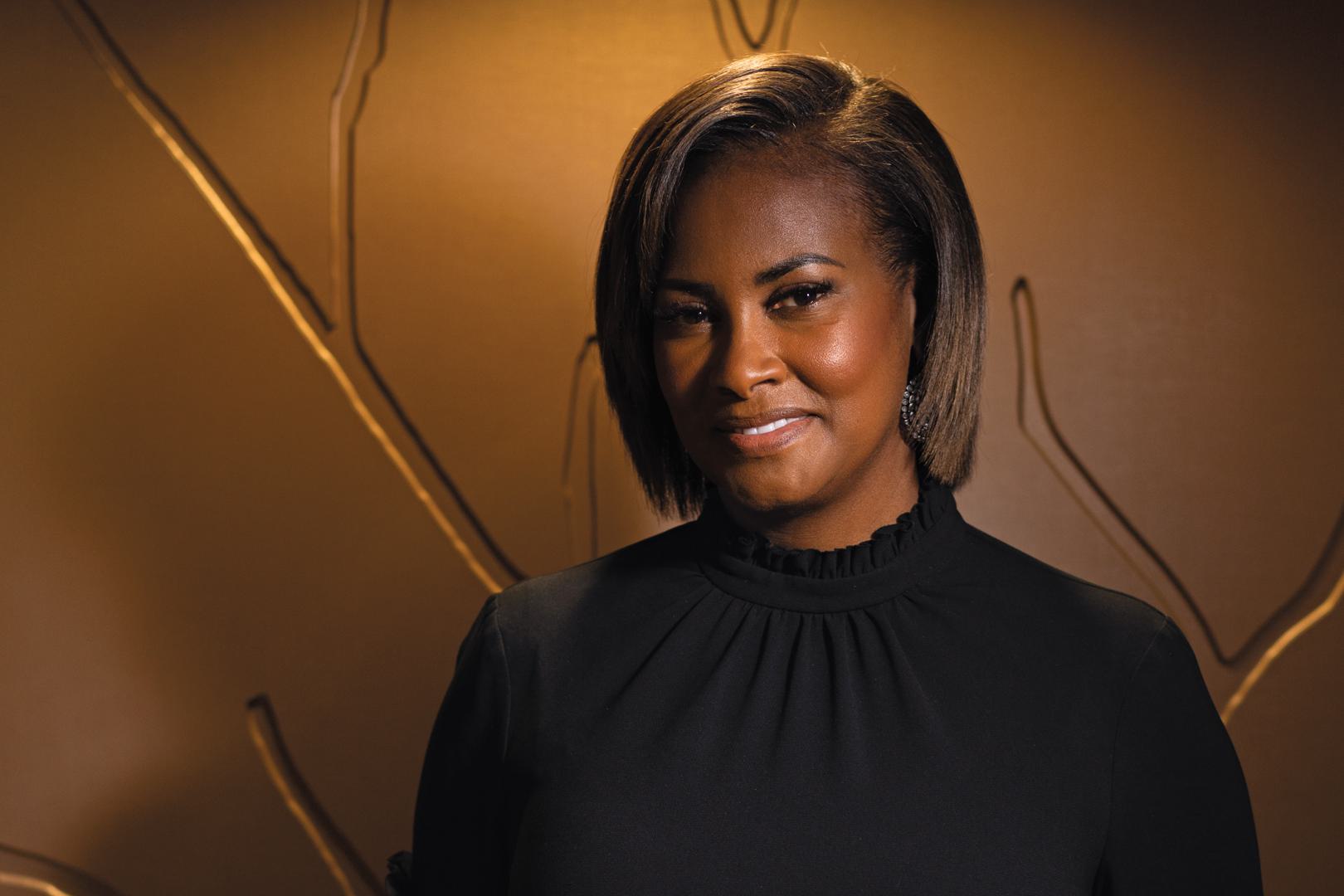It was September 2020, and Lynne Lightfoote ’95 had her arms full.
An OB/GYN at Sibley Memorial Hospital in Washington, D.C., she doesn’t usually like to be in the spotlight, but that day, a phone camera was turned on her as she cradled newly born twin babies Fara and Femi, beaming and tearing up.
Lightfoote had been mom Folashade Butler’s doctor for nearly 15 years. The doctor was candid with her patient about her many risk factors—she was a Black woman, over 35 years old, and pregnant with twins. When Butler arrived for her 37-week checkup with swollen feet and high blood pressure, Lightfoote swiftly decided the babies needed to be delivered before Butler became even higher risk by developing preeclampsia, a serious, potentially fatal complication. The twins were delivered safely a few hours later by Lightfoote and her all-Black care team and bundled in hospital blankets and tiny hats.
“They look beautiful in your arms, Dr. Lightfoote,” Butler says in the video. “I’m so thankful to you.”
Butler posted the video on Instagram, where it was viewed hundreds of thousands of times—both a grati-tude post for Lightfoote and a directive for other Black women. “Get a doctor who won’t sugarcoat health con-cerns,” Butler wrote. “Get a doctor who prioritizes your health and well-being. Get a doctor who will advocate for your life. Get a doctor you can trust!”
Butler’s outcome is the one Lightfoote strives for—healthy mom and healthy babies, which leads to an overwhelming feeling of relief and joy for Lightfoote that hasn’t worn off after decades in delivery rooms. Unfortunately, that’s not the outcome for too many Black people in America. According to the Centers for Disease Control and Prevention, Black women are more than three times as likely to die from a pregnancy-related cause than white women. American Indian and Alaska Native women are more than twice as likely to die than white women. Disparities exist even when factors like education level and income are controlled for; tennis champion Serena Williams’ harrowing expe-rience after giving birth to her daughter in 2017 brought national attention to the issue. And since Roe v. Wade was overturned last year, more people could potentially face adverse outcomes.
The causes for this inequity run deep—including lack of access to quality health care and systemic racism and implicit bias in medicine and society. Wellesley medical professionals and advocates are at the forefront of working to improve outcomes for Black birthing parents and their babies. That includes training medical staff to be more culturally competent, strengthening trust between doctors and patients, widening access to health insurance and care, and working to achieve health equity by naming racism and inspiring action.
This is an excerpt from an article by Amita Parashar Kelly ’06 that appears in the winter 2023 edition of “Wellesley” magazine. Read the full story on the magazine website.
